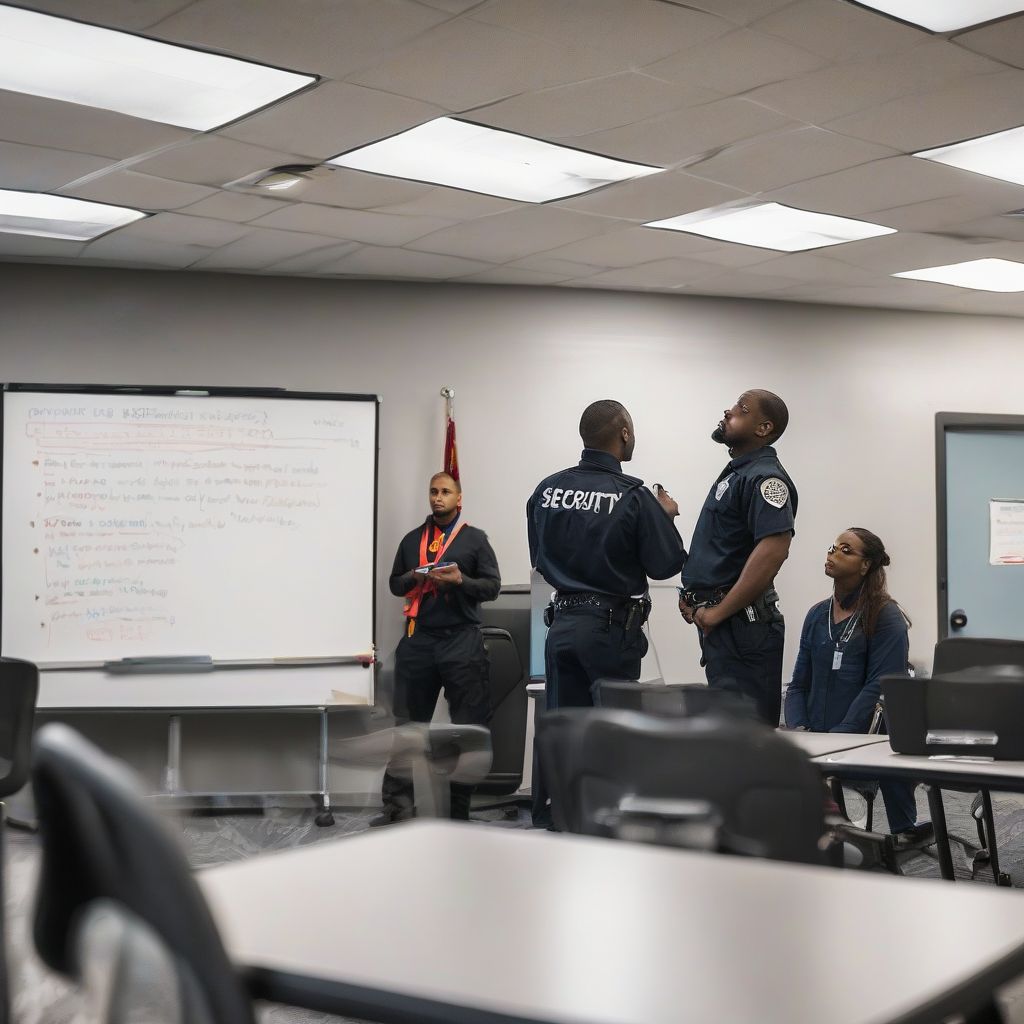In an era defined by evolving security threats, the role of a National Security Guard has never been more critical. This comprehensive guide delves into the multifaceted world of national security guards, exploring their responsibilities, training, and the crucial role they play in safeguarding our nation.
What is a National Security Guard?
A National Security Guard, often used interchangeably with terms like security officer or security guard, is a trained professional responsible for protecting individuals, property, and assets from various threats, including theft, vandalism, terrorism, and other criminal activities. While specific duties may vary based on the employer and work environment, national security guards serve as a visible deterrent to crime and play a vital role in maintaining order and safety.
Responsibilities of a National Security Guard:
The duties of a national security guard can be demanding and diverse, requiring vigilance, quick thinking, and a commitment to upholding safety protocols. Some common responsibilities include:
- Patrolling premises: Regularly patrolling assigned areas to deter criminal activity, identify security breaches, and ensure the overall safety of the property.
- Controlling access and egress: Monitoring entry and exit points, verifying identification, and ensuring only authorized personnel access restricted areas.
- Responding to incidents: Responding swiftly and effectively to security breaches, alarms, and other emergencies, following established protocols and coordinating with law enforcement when necessary.
- Surveillance monitoring: Operating surveillance equipment such as CCTV cameras, intrusion detection systems, and access control systems to monitor activities and identify potential threats.
- Enforcing rules and regulations: Enforcing client-specific rules and regulations, maintaining order, and addressing policy violations.
- Writing reports and maintaining records: Documenting incidents, observations, and activities meticulously, providing detailed reports to supervisors and relevant authorities.
Essential Skills for National Security Guards:
To excel as a national security guard, individuals need a combination of hard and soft skills, ensuring they can effectively handle the challenges of the job:
- Physical fitness and self-defense: Maintaining a reasonable level of physical fitness to handle potentially demanding situations and possessing basic self-defense skills.
- Observation and situational awareness: Demonstrating keen observation skills to identify suspicious activities, assess potential threats, and respond appropriately.
- Communication and interpersonal skills: Communicating effectively with colleagues, supervisors, law enforcement, and the public in a clear, concise, and professional manner.
- Integrity and professionalism: Maintaining the highest ethical standards, demonstrating honesty, trustworthiness, and a commitment to upholding the law and client confidentiality.
- Problem-solving and decision-making: Thinking critically under pressure, assessing situations quickly, and making sound judgments to mitigate risks and ensure safety.
- Technology proficiency: Operating security equipment, utilizing surveillance technologies, and adapting to new systems efficiently.
FAQs about National Security Guards:
1. What is the difference between a security guard and a police officer?
While both professions involve security and safety, key differences exist in their roles and authority. Security guards are primarily responsible for protecting private property and assets, enforcing client-specific rules, and deterring crime. Police officers, on the other hand, are law enforcement officials with broader authority to enforce laws, investigate crimes, and apprehend suspects.
2. What qualifications do I need to become a national security guard?
Requirements for becoming a national security guard vary depending on the state and employer. However, common prerequisites often include:
- Minimum age requirement: Typically 18 years of age or older.
- High school diploma or equivalent: A high school diploma or GED is generally required.
- Clean criminal record: A background check is standard procedure, and a clean criminal history is essential.
- Drug testing: Pre-employment and random drug testing may be mandatory.
- Training and licensing: Many states mandate specific training hours and licensing requirements for security guards.
3. What types of security guard jobs are available?
The security industry offers a wide array of career paths, with opportunities in diverse settings:
- Corporate security: Protecting office buildings, corporate headquarters, and other commercial properties.
- Retail security: Deterring shoplifting, maintaining order, and ensuring the safety of customers and employees in retail stores.
- Hospital security: Patrolling hospital grounds, responding to emergencies, and ensuring the safety of patients, staff, and visitors.
- Event security: Managing crowds, controlling access, and maintaining order at concerts, festivals, sporting events, and other public gatherings.
- Residential security: Protecting residential communities, gated communities, and private residences.
The Evolving Landscape of National Security
The field of national security is constantly adapting to emerging threats, technological advancements, and evolving security protocols. As technology continues to shape the security industry, national security guards are increasingly required to be proficient in operating advanced security systems, utilizing data analytics to assess risks, and adapting to new security protocols.
Importance of Ongoing Training and Development
To stay ahead of the curve, national security guards need to engage in continuous professional development. Attending industry conferences, pursuing certifications, and staying informed about the latest security trends are crucial for career growth and maintaining a competitive edge.
 National Security Guard Training
National Security Guard Training
Conclusion
National security guards play a vital role in protecting our communities, businesses, and institutions. As the security landscape continues to evolve, the demand for highly trained and skilled security professionals will only continue to grow. By understanding the responsibilities, skills, and training involved, individuals can determine if a career as a national security guard aligns with their aspirations and make informed decisions about pursuing a career in this dynamic and rewarding field.